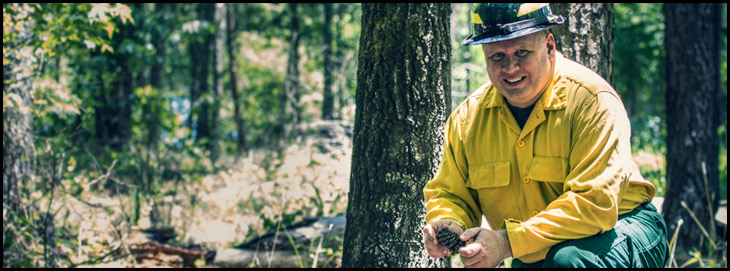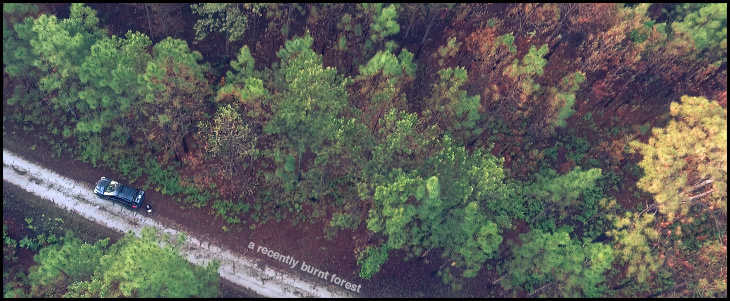If you were a tree, what would you be?
I would probably be a live oak. Live oaks are very strong trees that often have very thick limbs branching off in odd directions. Live oaks are often found draped with Spanish moss, providing a very distinctive look that is characteristic of the southern coastal plain.
Could you summarize what you do with fire?
I study the physics of what makes a wildland fire do what it does. How fast a fire spreads or how intense a fire becomes is determined by how the fire interacts with its environment. My primary area of focus is how weather effects fire behavior.
What does a typical field day look like?
Much of my work is done on computers rather than out in the field. I develop computer simulations of how fire spreads across a landscape. So my typical day involves lots of time in front of a computer or whiteboard solving equations.
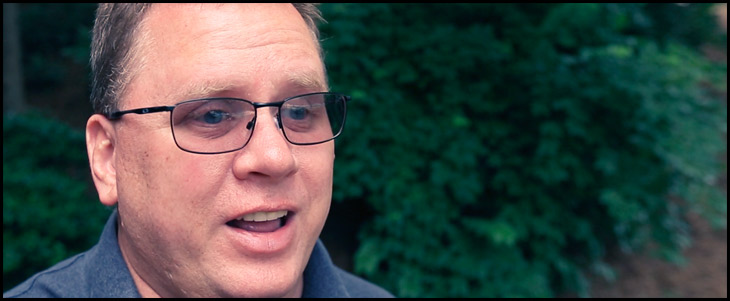
What inspired you to start doing this?
I was living in Florida in 1998 when they experienced one of their worst wildfire seasons ever. Within a few months I had joined the Florida Division of Forestry (now Florida Forest Service) as their fire weather meteorologist.
Why do you think it’s important?
Fire is important to many ecosystems, but it is also poses a serious threat to communities. Improving our understanding of both fire’s role in ecosystems and the physics that govern how fires behave will allow us to better use fire to manage our natural ecosystems while reducing the threat to our communities.
What do most people not know about fire and fire science?
Fire science involves many different sciences such as ecology, plant physiology, chemistry, physics, and meteorology.
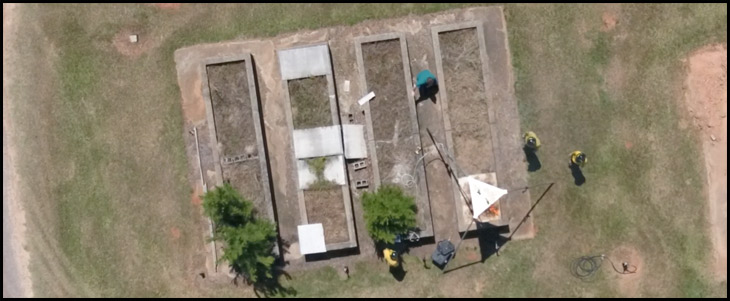
What is the most rewarding thing about doing this work?
The biggest reward to this work is working with people who are passionate about what they do. The excitement is contagious.
What if others want to help our forests – how can they help?
The biggest challenge we often face in using fire as a land management tool is getting the public to understand that fire can be a beneficial part of a healthy forest ecosystem. Simply spreading the word that not all fire is bad for forests; some fires are actually good.
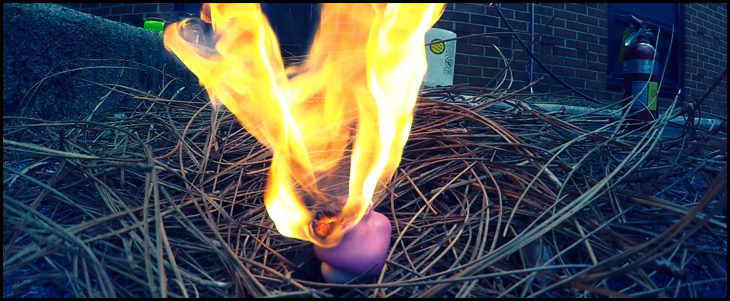
Finally, do you have any advice for a young student wanting to get into this field? What would you tell them?
Fire science covers a broad range of disciplines so there are many different aspects of fire to study. Just be curious and constantly seek answers for your questions.

